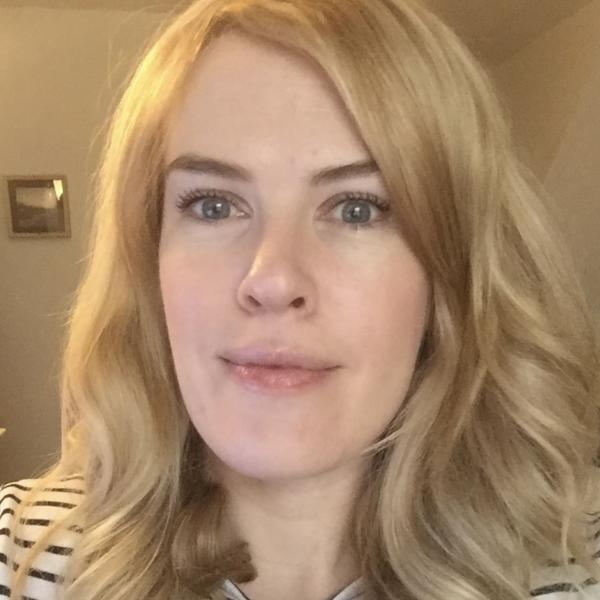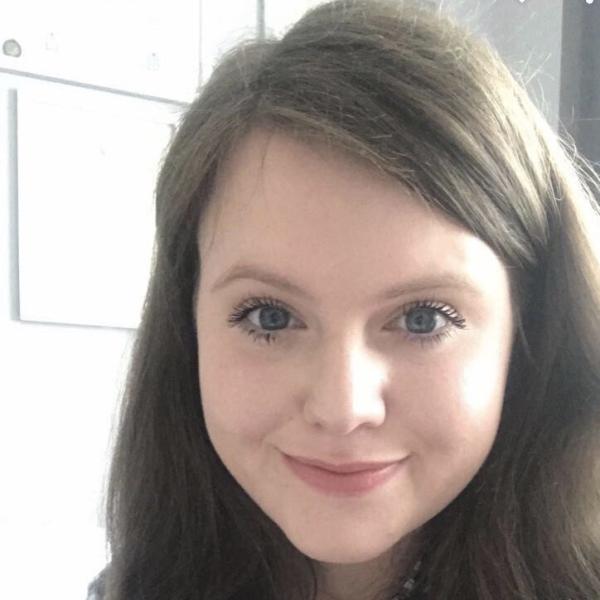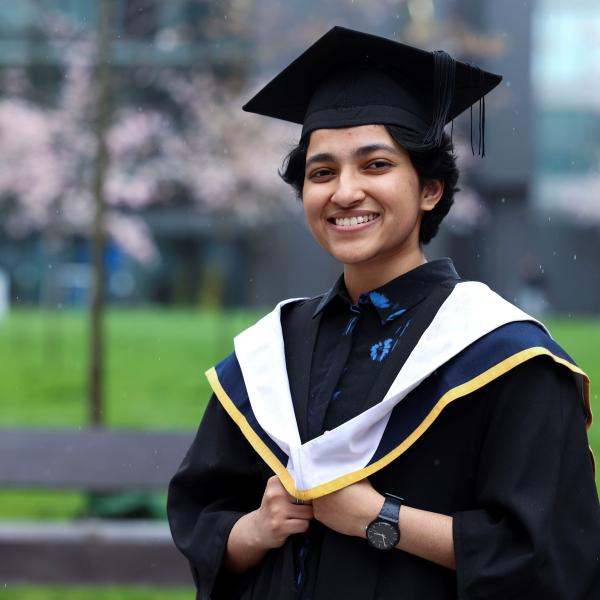Overview
Students in this programme often have a deep and long-standing fascination with children's and/or young adult literature. They enrol for various reasons. Some do it simply because they have a strong passion for these types of literature, while others see it as a way to advance their careers.
Our graduates have used the programme to further their aspirations as writers, while some have pursued doctoral studies.
The programme accommodates these different motivations and goals by providing a comprehensive course of study on the history and evolution of children's and young adult literature from the 17th to the 21st century. It also introduces students to critical research areas in the field.
The MA in Children's and Young Adult Literature at DCU offers a unique and supportive academic environment with expert faculty, diverse modules, collaborations with Children's Books Ireland, guest lectures by leading academics and writers such as Irish Authors Deirdre Sullivan and Sarah Maria Griffin as well as access to special collections of award-winning childrens and young adult texts, making it an excellent choice for those passionate about the subject.
You may also be interested in our MA in Children’s and Young Adult Literature Blog where you can read about our research and events, and all things children’s literature related.
DCU’s Adjunct Professor, Prof Peter Hunt speaks about his role as Adjunct to this programme - Listen Here
Why DCU
DCU People

Hi, I’m Jennifer Mooney, the Programme Chair of the MA in Children’s and Young Adult Literature.
Read more about Jennifer Mooney

I chose the MA in Children’s and Young Adult Literature programme because I am an advocate when it comes to encouraging curiosity and wonder in young readers.
Read more about Kate O’Brien

It was music that put Ireland, and DCU, on the map for Ashly Isac when deciding where to pursue a Master’s. “I’m a really huge Cranberries fan, and Hozier,” says Ashly.
Read more about Ashly Isac
Careers & Further Options
Careers
Our programme has empowered a diverse group of graduates who have taken various paths in their careers. Some have used it as a stepping stone to pursue doctoral studies and enter the academic field. Others have leveraged the knowledge and skills gained to excel in roles such as journalists, judges, lecturers, editors, publishers, researchers, and writers.
This programme has been especially valuable for English teachers at both primary and secondary levels, catalysing career advancement. It has also played a similar role for school librarians and those working in public libraries.
Graduates of the programme have made significant contributions to the field of children's literature. They have served as presidents of IBBY Ireland (the Irish division of an international non-profit organisation dedicated to connecting children with books), acted as adjudicators and chairs for the Children's Books Ireland Book of the Year Awards, and have even published their own children's literature.
"DCU graduates are highly sought after by employers. Our Graduates work in environments ranging from large multinationals to SMEs, family businesses and start-ups across every sector.
DCU Careers Service has a number of learning and development initiatives in place for our students, giving them the skills they need for a successful career path."
Entry Requirements
• This programme is open to applicants with an honours primary degree, minimum H2.1 (Level 8 NFQ) in a related subject. Applicants with an honours degree who do not meet the minimum entry of a H2.1 but can show substantial and demonstrable experience related to children's and/or young adult literature may be considered for a place on the programme.
• As part of the selection process you may also be required to attend for interview, and you may also be asked to submit a personal statement (maximum 750 words), outlining why you wish to study for a master's degree in Children's and Young Adult Literature
• Recognition of Prior Learning (RPL) applicants are required to submit a cover letter along with their application under the Transcripts section of the portal, affirming their intent to apply for RPL. For more information on RPL see here.
International Applications
• International applicants are expected to have educational qualifications of a standard equivalent to those outlined above. In addition, where such applicants are non-native speakers of the English language, they must satisfy the university of their competency in the English language.
Programme Structure
The MA in Children's and Young Adult Literature degree programme has a number of aims:
- To shed light on the literary and cultural importance of children's and young adult literature.
- To enhance students' understanding and appreciation of children's and young adult literature, enabling them to interact with these literary works critically and creatively.
- To cultivate practical skills in students, giving them the confidence to approach reading, writing, and research more effectively.
- To help students recognise that the skills they acquire in this programme can be applied in various areas, making them versatile and adaptable.
The MA in Children’s and Young Adult Literature degree programme is offered both as a full-time option and as a part-time over two years.
Part-time students follow a two-year schedule. During their first year, they engage in extensive reading, exploring various topics such as children's literature's artistic and political aspects, different forms and genres, and changing ideas about what constitutes appropriate reading material for children and young adults.
In their second year, part-time students focus on a particular area of research and, with the guidance of their supervisors, write their dissertations.
Full-time students complete all requirements of the degree programme within a single year.
Typically, for part-time students, the programme is taught on two evenings per week in Year One (usually Tuesdays and Thursdays from 16.00 to 18.00).
In Year Two, formal lectures only take place one day a week in both semesters; in Year Two students also meet occasionally with their dissertation supervisors, at mutually convenient times, to complete a minor dissertation of circa. 12,000 words.
To meet the requirements of the Masters in Children’s and Young Adult Literature degree programme, students must take six taught modules, which are assessed by means of essays, and produce a minor thesis of circa. 12,000 words.
Modules are subject to review and amendment. The modules below are provided for the purposes of illustration only to give part-time students a sense of how the programme is usually structured (full-time students take all modules in one academic year):
- Histories and Contexts
- Theories, Critics, Research Methods
- Picturebooks and Film
- European Children's Literature
- School Stories and 'Schooling' in Children's and Young Adult Literature
- Fantasy and Poetry
- Dissertation (which includes supervisory sessions with a research supervisor; research and writing seminars; and, student presentations)
Fees and Funding
Fees
How To Apply
All Applicants must submit
All Applicants must apply through DCU's Student Application Portal which is available here. Here's a quick step by step guide if you need help with your application:
- Certified academic transcripts for each and every year of study, with certified English translations, if applicable
- As part of the selection process you may also be required to attend for interview.
Non Native English Speakers
- Evidence of English competency which meets DCU entry requirements - see link
Application Deadlines
Applications will be accepted on a rolling basis until the programme is full or until the following dates:
- Closing date for non EU applicants is 1st July 2025
- Closing date for EU applicants is 30th August 2025
All entry requirements should be met before the commencement of the programme.
EU Applicants
Applications will be reviewed and offers will be made on an ongoing basis. Should places still be available on this programme.
Non-EU / International Applicants
Applicants will be reviewed and offers will be made on an ongoing basis. Should places still be available on this programme.
Applicants who require a study visa for the purposes of gaining entry into Ireland are advised to apply as early as possible. If you need a study visa and are a Non EU/International student, you are not eligible to apply for part time programmes as study visas are only granted for full time programmes.
Application Queries
For EU applicant queries, please visit https://www.dcu.ie/registry/eu-postgraduate-taught-admissions or email postgraduateadmissions@dcu.ie
For non EU applicant queries, please visit https://www.dcu.ie/registry/international-admissions-undergraduate-and-postgraduate or email internationaladmissions@dcu.ie
Commencement of Programme
The programme commences in September 2025
Life On Campus
At DCU, our students can expect a unique campus experience. We are known for our excellent teaching and learning facilities, our active clubs and societies, and our great social and sporting facilities. All this makes DCU an exciting place to be.
DCU has three academic campuses; Glasnevin, St. Patrick’s and All Hallows (both in Drumcondra), all close to Dublin City centre.
They can be reached by public transport, Dublin Bus and Bus Éireann, with our Drumcondra campuses a ten minute walk from Drumcondra Train Station. Glasnevin is a 20 minute walk from St Patrick’s and All Hallows. They are also linked by Dublin Bus.
Each campus has a library (O’Reilly, Cregan and Woodlock Hall), study spaces, restaurants, and on-campus residencies. There are sports facilities on Glasnevin and St. Patrick’s, and there is a dedicated sports campus, St Claire’s, located near Glasnevin on the Ballymun Road.
DCU’s 19,000 students have access to exceptional teaching and learning facilities across our three academic campuses.
These include modern learning theatres, research centres, a new media and TV studio, radio/podcast studios, computer suites and advanced labs in the areas of Languages, Engineering, Physics, Chemistry and Biotechnology, as well as a Sports Performance centre and a training hospital ward. In 2021, we opened our first virtual reality ‘Leadership Lab’, which is located in our Business School.
We continue to improve and update our facilities. For example, construction of a new world-class STEM facility is underway on the Glasnevin campus. With capacity for an extra 3,000 STEM students, this facility will advance DCU’s international reputation for excellence in science and health, computing and engineering disciplines.
Studying in DCU isn’t just about course work. The university is rich in student life and activities.
There are more than 140 clubs and societies for students in DCU, with ‘Clubs & Socs’ days taking place on both the Glasnevin and Drumcondra campuses at the start of the academic year. They span everything from rugby to rock climbing, anime to jazz.
For many students, sport is an important part of the DCU experience. DCU’s Sports Complex boasts a 25 metre swimming pool, fitness centre gym, all-weather pitches and squash courts, as well as soccer, GAA and rugby pitches. DCU Dóchas Éireann, the university’s GAA club, is the largest third level Gaelic Games club in the country. Meanwhile, DCU Athletics has been Ireland’s highest achieving university club for many years. And DCU has dozens of other clubs to get involved in, from Archery to Weightlifting.
The Glasnevin campus is home to our purpose built, state-of-the-art student centre, The U, which serves the needs of a rapidly growing student body. Here, you will find the Student Leadership and Lifeskills Centre, performing arts and cultural spaces for students and the wider community, and the Entrepreneurship and Innovation Hub. Also located on our Glasnevin campus is The Helix, our renowned performing arts centre.
On our St Patrick’s campus, we have the Java Student Hub, a vibrant, warm and welcoming space where students can meet for coffee, play music, use the projector to watch events, or just relax. The walls of the Java Hub were designed based on the cultural history of St Patrick’s Campus, including the special references to the notable sporting history and history of the arts.
We have a number of academic, professional and social supports for students.
Student Advice & Learning Skills Centre - Offers a wide range of supports and services to students and advice
The Writing Centre - drop-in writing workshops for students through the academic year
Maths Learning Centre - provides maths support for students of all ability levels with maths modules
Student Learning - facilitate the transition from passive to active learning for students at DCU, by teaching study skills, nurturing critical thinking and building student confidence.
Careers work with students to help them on their professional journey into graduate employment.
Our student support team offers a comprehensive support programme, helping students make that all important transition into university life and focusing on building confidence and skills which are key to success at third level.

DCU Glasnevin Campus
FAQs
Is DCU all one campus?
DCU is a multi campus university - the Glasnevin, St Patrick's and All Hallows campuses. The St Patrick's campus is where the Education courses are taught and some of the subjects from the BA Joint Honours degree. There is a 20-25 minute walk between the campuses but there are buses and bikes available to go between them also.
Click here to see maps of all of our campuses
If I'm studying on the St Patrick's campus, can I use the library and sports centre on the Glasnevin campus?
Yes, all facilities such as sports and accommodation are open for all DCU students to avail of.
Are there libraries in DCU and if they have wifi and work stations?
We have a brand new state of the art four floor library on our St. Patrick's Campus which complements the existing library on the Glasnevin campus. There is free wifi, work stations as well as desktop computers.
Does DCU provide accommodation?
DCU does have on-campus accommodation for undergraduate and postgraduate students, and you can find out more and apply via the Accommodation Office webpage.








